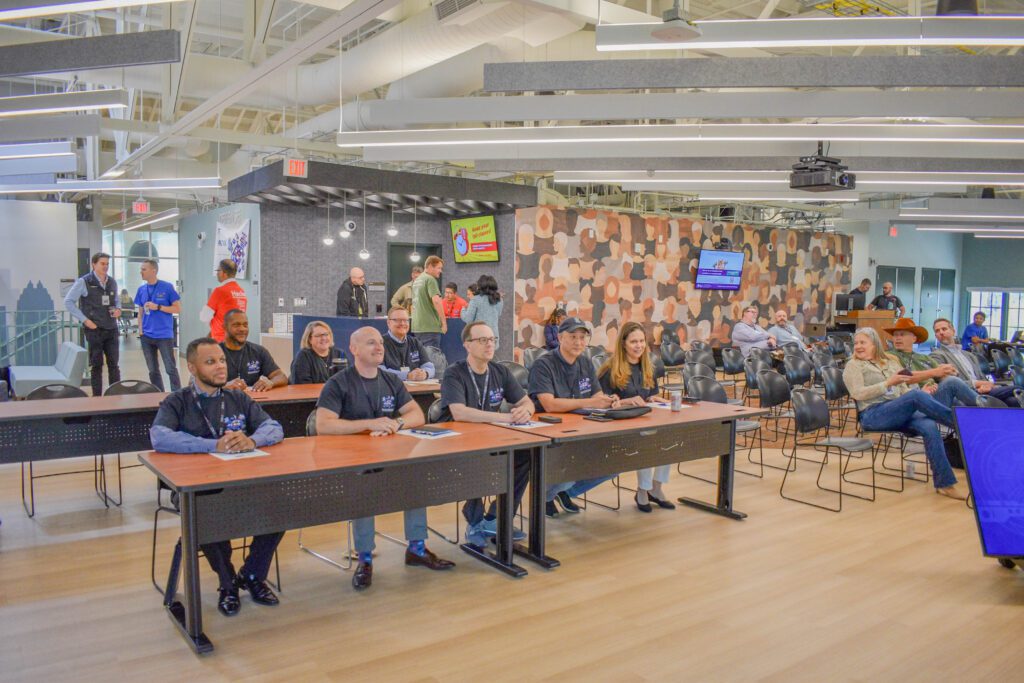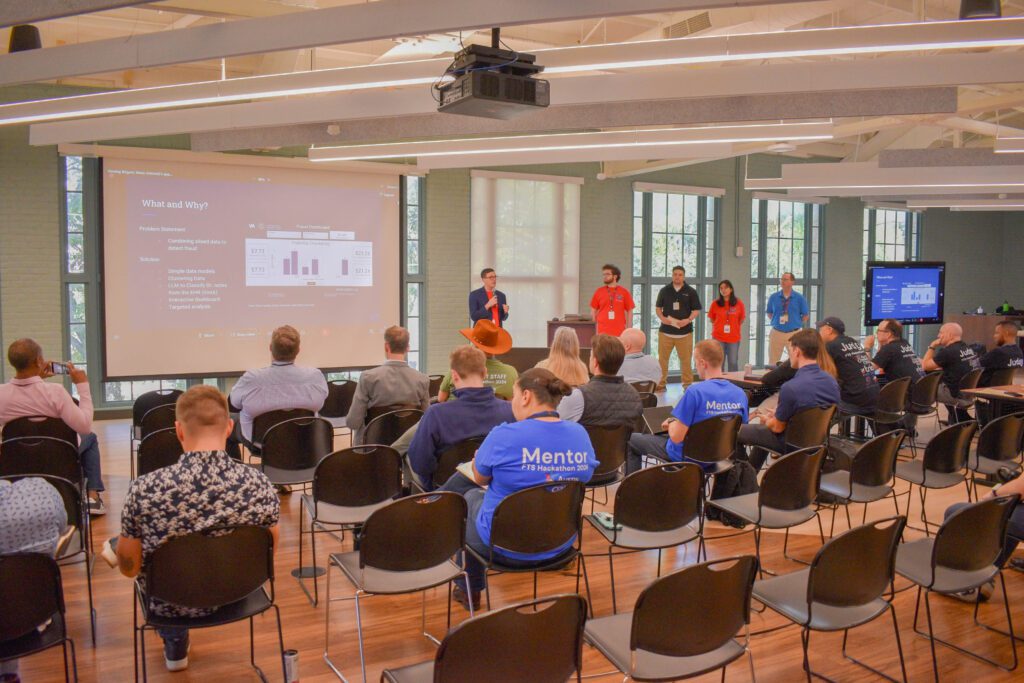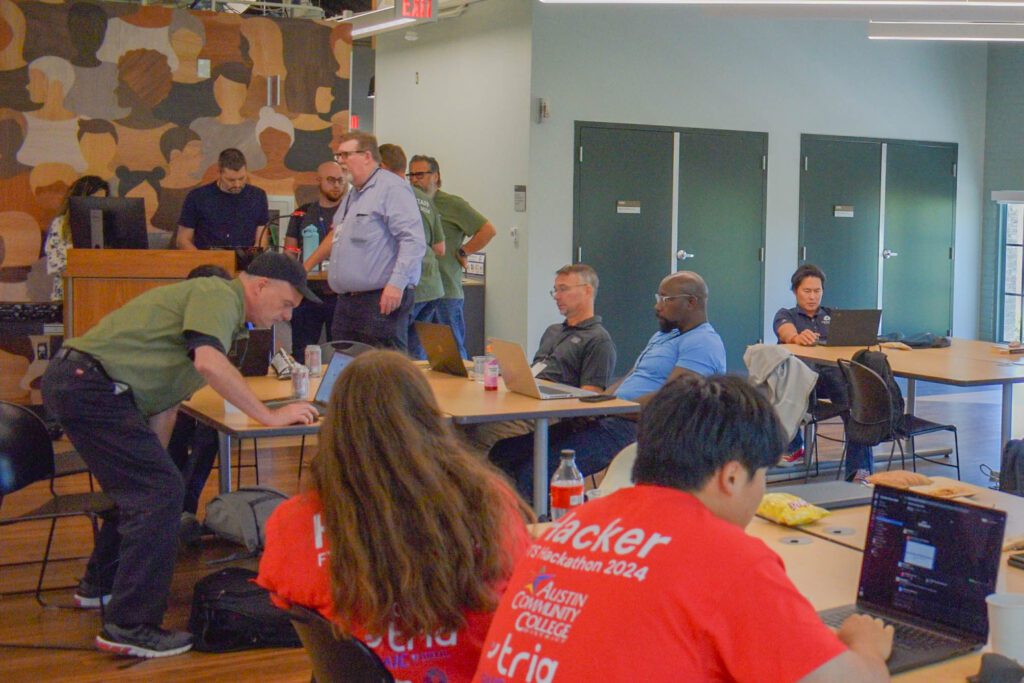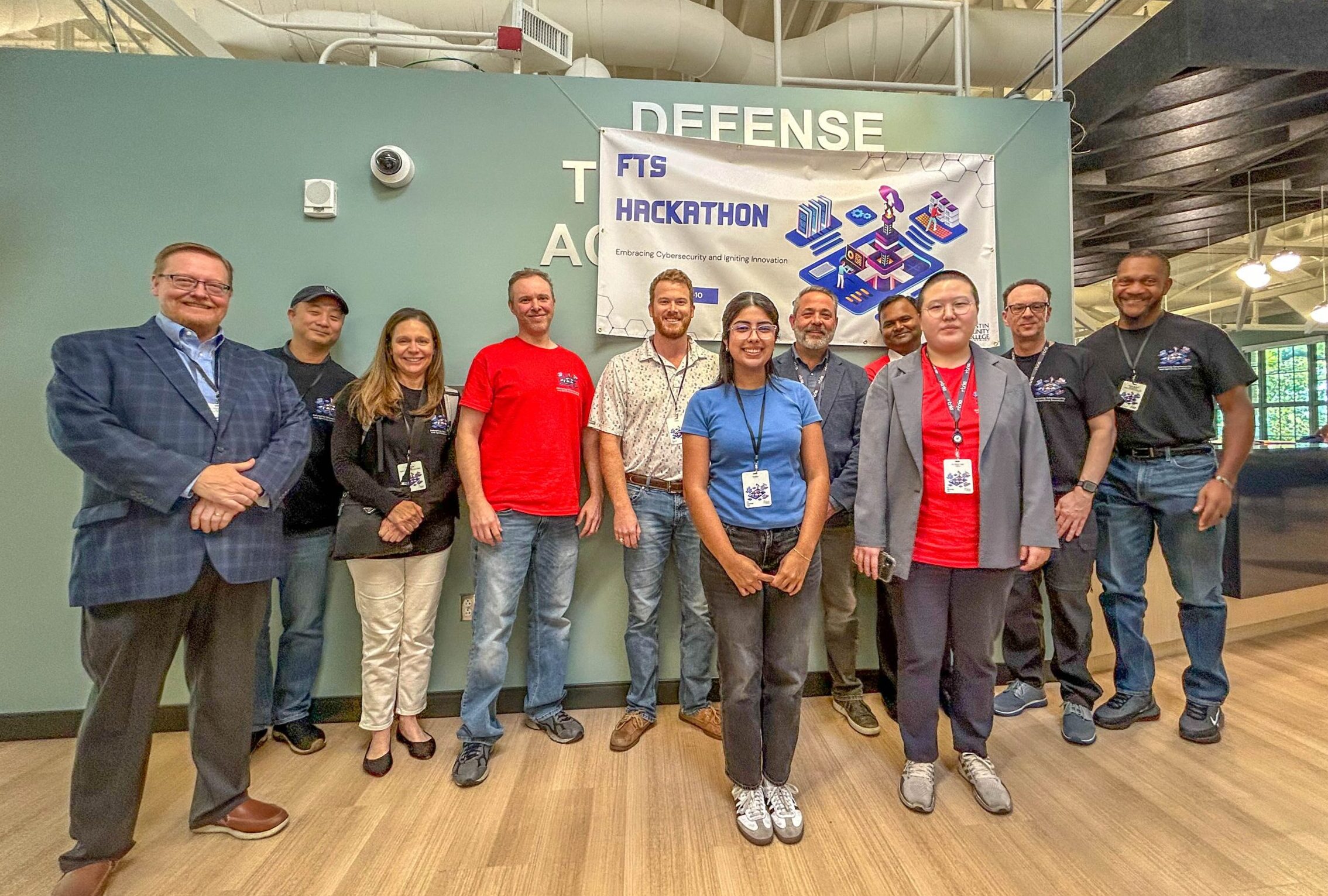A recent Department of Veterans Affairs (VA) hackathon supported by Tria Federal provided college students with the unique opportunity to develop innovative solutions for some of the federal government’s toughest challenges.
Hosted by VA’s Financial Services Center (FSC) Financial Technology Service (FTS), the FTS Hackathon brought together federal employees, industry experts and college students for three days in October.
With the slogan “Embracing Cybersecurity and Igniting Innovation,” the event featured workshops on artificial intelligence (AI), machine learning and user experience design. More than 100 participants formed seven teams to brainstorm solutions around the complex issues of fraud and cybersecurity.

“The hackathon brought a breath of fresh air as we watched college students try to tackle the problem of fraud, which negatively impacts payers, healthcare providers and patients,” said John Cho, Tria Federal CTO and a hackathon judge.
Winning solutions at the FTS Hackathon included a fraud detection platform using AI to identify inaccurate billing codes, a risk management dashboard targeting fraudulent claims and improper payments, and a fraud detection tool that uses AI to detect providers engaging in medical billing fraud. Participants estimated that their proposals could save more than $400 million if implemented.
Team presentations were evaluated by eight industry judges with advanced experience in cybersecurity, fraud, generative AI, data-engineering and strategic enablement solutions. Led by Cho, the judges asked good questions of each team, and the teams answered well, noted Mike Cosgrave, Tria’s chief operating officer, who attended as an observer.

“Given that teams could only present a three-minute pitch, it took a fair amount of effort – and stress – for them to pack all their ideas into it,” Cosgrave said. “It was really great to watch the teams work together to present some fantastic ideas.”
Federal team members presented healthcare and fraud briefs, and students had the opportunity to attend VA Career and Emerging Cybersecurity Roles sessions to gain knowledge about cybersecurity in today’s technology landscape.
Cho said some people may ask how students can play a meaningful role in tackling a difficult problem that the federal government continues to fight. He pointed to a long history of students solving complex problems.
“Although they don’t have the deep expertise, they can creatively collaborate and tackle the problem differently without any bias or knowledge of the complexity of the problem,” he said.

Hackathons provide a framework for problem-solving without the biases that can come with professional experience, according to Cho.
“Everyone wins at a hackathon,” he said. “Hard problems get tackled. Creative collaboration between academia, government and industry can flourish. Students can gain tremendous knowledge and experience. And everyone learns.”
The event was the inaugural hackathon for FTS and included partnerships with Austin (TX) Community College and industry supporters including Tria.
